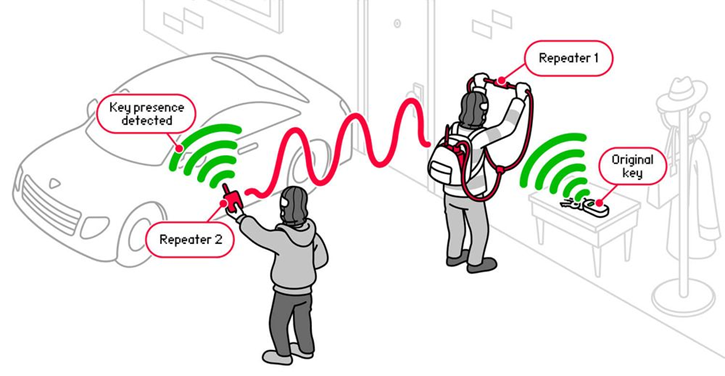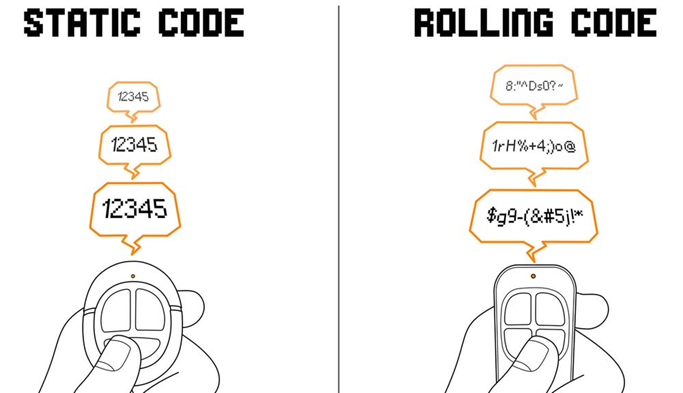Who is really dangerous - hijackers or Flipper Zero?
In February, the Canadian government announced a ban on the import, sale and use of Flipper Zero. However, the developers of Flipper Zero insist that such measures can harm security and slow down technological progress, pointing to a misunderstanding of the real functionality of the device on the part of lawmakers.
The Canadian authorities explained the ban by referring to the use of a car theft device with keyless entry systems. The statement caused a wide response on the Internet, where users pointed out that the problem lies not in gadgets, but in outdated protection of the cars themselves.
To understand the problem, you need to know how keyless entry systems work and how exactly hijackers bypass their protection. The theft method is based on the use of repeaters that mislead the car, making it think that the key is nearby. However, to carry out this type of attack, specialized devices are required, the cost of which reaches thousands of euros and which take up a significant amount of space.

Thieves use repeaters to trick the car's security system
Flipper Zero, despite its ability to receive and decode radio signals, cannot be used as a repeater for attacks on keyless access systems. The gadget is equipped with only one radio module with a frequency of up to 1 GHz and is not able to break the complex encryption used in modern cars. In addition, many modern cars use a generated code system for additional protection, which makes it impossible to steal them using simple radio modules, as opposed to static code.

Difference between static and generated code
In response to the proposed measures, The Canadian Repair Coalition called on the government to better understand the technology and move away from simplistic solutions such as banning devices without understanding their features and benefits. In addition, the developers published a video showing the process of intercepting a radio signal using a piece of cable.
The developers also call for support for the petition against banning Flipper Zero, arguing that such measures only harm innovation and security, creating a false impression of effective security measures being taken. In conclusion, the authors emphasize the importance of addressing security issues based on technological progress and eliminating existing vulnerabilities instead of banning tools that can detect them.
In February, the Canadian government announced a ban on the import, sale and use of Flipper Zero. However, the developers of Flipper Zero insist that such measures can harm security and slow down technological progress, pointing to a misunderstanding of the real functionality of the device on the part of lawmakers.
The Canadian authorities explained the ban by referring to the use of a car theft device with keyless entry systems. The statement caused a wide response on the Internet, where users pointed out that the problem lies not in gadgets, but in outdated protection of the cars themselves.
To understand the problem, you need to know how keyless entry systems work and how exactly hijackers bypass their protection. The theft method is based on the use of repeaters that mislead the car, making it think that the key is nearby. However, to carry out this type of attack, specialized devices are required, the cost of which reaches thousands of euros and which take up a significant amount of space.

Thieves use repeaters to trick the car's security system
Flipper Zero, despite its ability to receive and decode radio signals, cannot be used as a repeater for attacks on keyless access systems. The gadget is equipped with only one radio module with a frequency of up to 1 GHz and is not able to break the complex encryption used in modern cars. In addition, many modern cars use a generated code system for additional protection, which makes it impossible to steal them using simple radio modules, as opposed to static code.

Difference between static and generated code
In response to the proposed measures, The Canadian Repair Coalition called on the government to better understand the technology and move away from simplistic solutions such as banning devices without understanding their features and benefits. In addition, the developers published a video showing the process of intercepting a radio signal using a piece of cable.
The developers also call for support for the petition against banning Flipper Zero, arguing that such measures only harm innovation and security, creating a false impression of effective security measures being taken. In conclusion, the authors emphasize the importance of addressing security issues based on technological progress and eliminating existing vulnerabilities instead of banning tools that can detect them.
